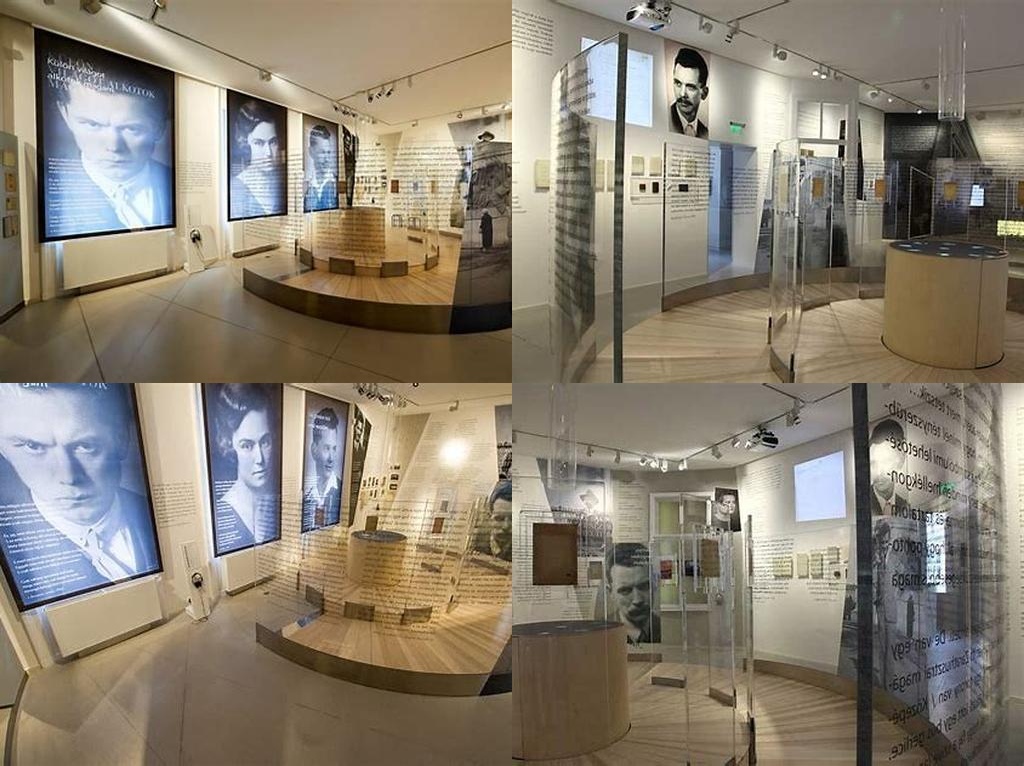
József Attila Emlékhely is a captivating spot along the Csepel embankment in Budapest where history and poetry genuinely intertwine. If you’re the sort of traveller who seeks meaning rather than just photographs, and if you find a city’s soul between words and walls, this memorial site devoted to József Attila is definitely for you. The gentle hush inside, so different from the city’s usual swirl, sets the stage for reflection on both the poet’s own turbulent life and the world he lyrically dissected.
At its heart, the memorial was established on the ground floor of a modest house where József Attila was born on April 11, 1905. The walls reverberate with the echoes of his early years—a story that’s not just about poetry but about survival in hardship. The exhibition is immersive, displaying handwritten manuscripts, weathered personal effects, and touching family snapshots, all carefully preserved to give you a sense of the poet as a person, not just a name in a textbook. Walking these rooms, you’ll feel the human emotion behind lines like “Mama always washed me / she washed and scrubbed with tears,” realizing these words were forged in the very spaces in which you’re standing.
What sets József Attila Emlékhely apart isn’t just the memorabilia but the quiet narratives they spark. The house itself has an almost unvarnished authenticity—modest walls that have seen the days when little Attila, losing his father at age three, was left alongside his siblings to the care of a struggling mother. The site’s location in Ferencváros, an area rich with working-class history, adds even more resonance; you observe how the city’s changing face might have appeared through his eyes in the early twentieth century, its poverty and hope entwined, reflecting so many of the themes in his writing.
The permanent exhibition does a beautiful job of balancing context and emotion. You’ll find unique audio installations—his poems read out loud—filling the space with his tumultuous, haunting voice. The archive photos and interactive displays really help bridge the divide between contemporary Budapest and József Attila’s era, making his struggles and successes feel immediate rather than distant. For those unfamiliar with Hungarian, the English subtitles and descriptions mean you won’t miss a beat of the poet’s dramatic life story.
Perhaps the real highlight is how versatile the space feels. It’s not just for lovers of poetry, but for anyone interested in the human side of Hungarian history. On one visit, you might find local students debating his political legacy, while on another, you’ll witness animated book club discussions or a literary evening celebrating his birthday on April 11—now recognized nationally as the Day of Hungarian Poetry. This isn’t a typical museum experience where the past is frozen behind glass; it’s a living, breathing tribute to a man who questioned everything and dared to find beauty and meaning amidst adversity.
Outside the memorial, the simple garden offers a space for contemplation, shaded by trees familiar to Attila’s youth. It’s easy to imagine him as a young boy daydreaming beneath their branches, words already swirling in his restless mind. As the city hums quietly in the distance, you may find yourself rereading his verses on the wall, feeling a small jolt of connection across time and culture.
Visiting József Attila Emlékhely is an experience that lingers. Whether you arrive with an admiration of poetry or just a curiosity about Hungary’s cultural currents, you’re likely to leave with a deeper understanding of the emotional undercurrents that shaped both the poet and his homeland. For anyone who believes history and art are best experienced firsthand, this place is an utterly rewarding point of discovery on any journey through Budapest.





